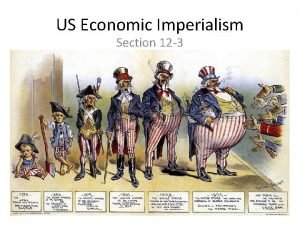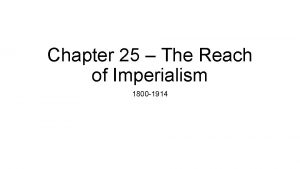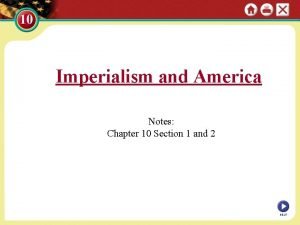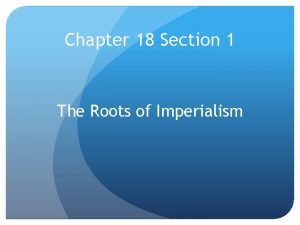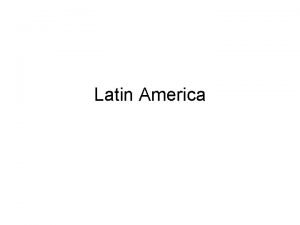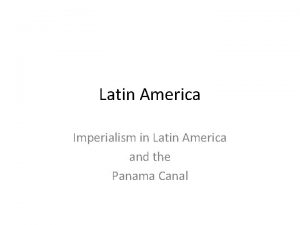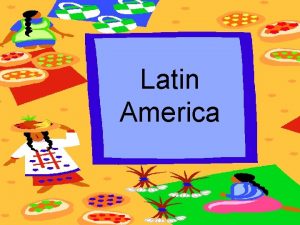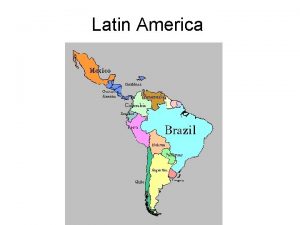US Economic Imperialism Section 12 3 Latin America






- Slides: 6

US Economic Imperialism Section 12 -3

Latin America After Independence Colonial Legacy • Political gains mean little to desperately poor Latin Americans • Peonage system keeps peasants in debt; landowners grow wealthy (get paid with vouchers) Political Instability • Caudillos—military dictators—gain and hold power, backed by military • By the mid-1800 s, caudillos rule in most Latin American countries • Reformers sometimes gain office, but eventually are forced out • Wealthy landowners support caudillos; poor people have few rights

Economies Grow Under Foreign Influence Old Products and New Markets • Economies depend on exporting one or two products • Trains and refrigeration increase demand for Latin American foods • Latin Americans import manufactured goods; industrialization lags (they depend on foreign goods) Outside Investment and Interference • Latin Am. countries build few schools, roads, hospitals • Governments are forced to borrow money from other countries • Loans not repaid; properties repossessed; foreign control increases

A Latin American Empire The Monroe Doctrine • Newly independent countries of the Americas are insecure • In 1823, U. S. issues Monroe Doctrine— Europe cannot colonize Americas Cuba Declares Independence • In 1895, José Martí—Cuban writer— launches war for Cuban independence • U. S. fights to help Cuba in 1898, leading to Spanish-American War • In 1901, Cuba nominally independent; U. S. has significant control • After war, Spain gives U. S. Puerto Rico, Guam, the Philippines

A Latin American Empire continued… Connecting the Oceans • U. S. wants a faster way of going from the east to west coast by ship • President Roosevelt backs idea of building canal across Panama • Colombia rejects Roosevelt’s $10 million canal offer • In 1903, Panama gains independence from Colombia with U. S. help • Panama gives land to U. S. to build canal • U. S. builds Panama Canal—waterway connecting Atlantic and Pacific

A Latin American Empire continued… The Roosevelt Corollary • U. S. bolsters its influence in Latin America through many avenues • There are many U. S. business investments in Cuba and other Latin American countries • In 1904, Roosevelt issues an update of the Monroe Doctrine • Roosevelt Corollary—U. S. can be an international police power in the Western hemisphere • U. S. uses corollary to justify repeated military interventions
